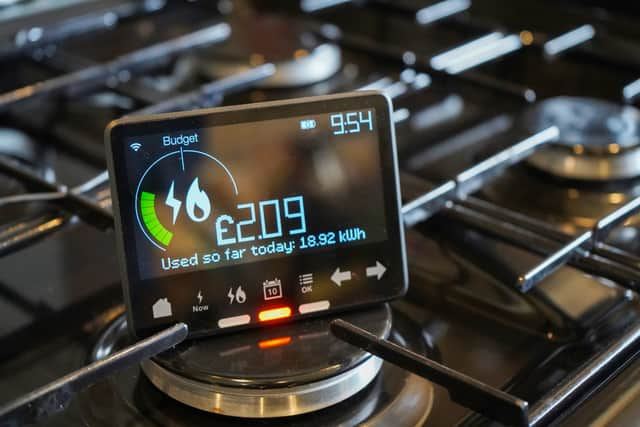What is the energy price cap? Ofgem’s rules shake-up explained - and will UK bills increase in October?
and live on Freeview channel 276
The price cap on household energy bills could be reviewed every three months under new plans by the industry regulator.
Ofgem has said that it may add two new reviews per year, one in January and a second in July, meaning the price cap on bills would change twice as often.
Advertisement
Hide AdAdvertisement
Hide AdThe regulator said that the change from the current twice-yearly adjustment, which takes place in April and October, will help customers when wholesale gas prices fall from current peaks by passing on savings to households more rapidly.
It will also protect under-pressure energy suppliers when prices on international markets rise by ensuring they do not have to take the hit of supplying energy to consumers at a below-market rate for more than a few months.


What Ofgem said?
Ofgem said it hopes that the proposed changes, which would see the price cap reviewed every three months instead of every six, could come into force from October, following a consultation.
This would mean that the first change under the new system would be made in January.
Advertisement
Hide AdAdvertisement
Hide AdOfgem chief executive Jonathan Brearley said: “Today’s proposed change would mean the price cap is more reflective of current market prices and any price falls would be delivered more quickly to consumers.
“It would also help energy suppliers better predict how much energy they need to purchase for their customers, reducing the risk of further supplier failures, which ultimately pushes up costs for consumers.
“The last year has shown that we need to make changes to the price cap so that suppliers are better able to manage risks in these unprecedented market conditions.”


What is the energy price cap?
The energy price cap limits how much energy firms can charge customers and is updated by Ofgem every six months.
Advertisement
Hide AdAdvertisement
Hide AdIt is reviewed and changed in October and April, and is currently at a record high of £1,971 per year for the average household after global gas prices soared.
The change in April this year saw bills rise by £693 per year for around 22 million households across the UK following a price hike of 54%. For customers with prepayment meters, the price cap increased by £708 to £2,017.
The price cap is based on the price of wholesale energy and supplier costs which have increased by 250% since January and rose by 70% in August alone.
The price increase was fuelled by a cold winter across Europe last year, meaning gas was being used up more quickly, putting pressure on global supplies and gas levels in storage are much lower than normal as a result.
Advertisement
Hide AdAdvertisement
Hide AdUnseasonably warm weather in Asia also saw more households use gas for air conditioning units, again meaning more gas was burned than usual, and there has been reduced supply from Russia amid political moves.
Will bills increase in October?
Ofgem currently reviews the price cap in April and October, meaning energy bills could go up again later this year.
The latest forecasts suggest bills could rise to almost £2,600 in October when the next price adjustment is due, with the rise reflecting the impact of Russia’s war in Ukraine for the first time.
Mr Brearley said the proposed changes to review the price cap four times a year would mean that bills could go up quicker, but added they will also fall more rapidly.
Advertisement
Hide AdAdvertisement
Hide AdHe told Sky News: “Remember that the total cost you pay over the year would be absolutely the same, because that reflects only the cost of the energy that we buy.
“Yes, the price would go up more quickly as prices go up, but equally importantly as those prices come down, then the price cap comes back down again.
“I remember back in the 2010s when people saw their prices go up and were waiting and wondering why prices didn’t come down equally quickly.
“The good thing about the price cap is that we will make sure it only reflects costs, and therefore it only reflects what you need to pay for your energy.
Advertisement
Hide AdAdvertisement
Hide Ad“With the Russian invasion of Ukraine, we are seeing a sustained increase, a further increase, in gas prices. So, the difficult news I have is that it is likely in October that prices will go up again.”
Comment Guidelines
National World encourages reader discussion on our stories. User feedback, insights and back-and-forth exchanges add a rich layer of context to reporting. Please review our Community Guidelines before commenting.
